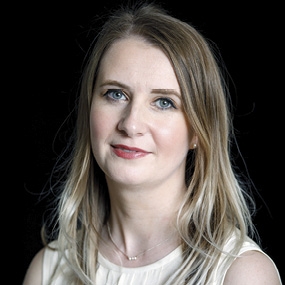COVID-19: A message from your trainee Council representative

Anaesthetic registrar, RCoA Member of Council
To all my colleagues in anaesthetic training,
I know I am not alone amongst you in finding this a daunting time. It is worrying to see a novel disease spread across the world and to watch its effects play out in different healthcare systems, wondering if their experiences are an accurate forecast for our own.
Our training in airway management and experience with the critically unwell makes us an invaluable resource in managing COVID-19, so of course we will find ourselves amongst the front line of NHS healthcare workers dealing with its effects. It is a privilege to possess these abilities and be able to use our skills to such important effect, but it also places on us a burden of responsibility, which I think is weighing on many of our minds.
I have no doubt that we are clinically up to doing what the health service requires of us – each of us can easily bring to mind a relentless night shift or weekend, and any number of high-stakes intubations or resuscitations that we’ve led or been involved in, and we’ve got our patients, ourselves and our team through. What lies ahead appears to be many weeks if not months of such relentless shifts and unwell patients, but with the support of seniors, collaboration with hospital colleagues and a well-organised approach, we will come through the other side, and bring many of those sick patients through with us.
The effects of COVID-19 outside of the direct healthcare setting are unprecedented in my time as a doctor in training. I can only imagine how I would feel were I in the position of one of you who has been preparing for part of the FRCA exam, only to find it now cancelled. Those of you hoping to apply for ST3 jobs in the coming weeks must also be feeling very anxious as you read about the uncertainty surrounding recruitment to all specialities. Many of us will find it difficult to complete all of our clinical modules this year, as elective work is replaced with emergency work and supporting our colleagues on intensive care.
It is of course right that these things happen at this time, but those at the Royal College of Anaesthetists responsible for your training are acutely aware of the impact this has on you practically and psychologically. The College is united with the approach of other bodies responsible for medical education and, as long as it is not at the cost of patient safety, flexibility will be shown to allow progression through your training despite these hurdles.
While much of our time will be consumed with patient care in the coming months, it is no less important that we take time and effort to care for ourselves. Now more than ever it is important to take scheduled rest breaks and encourage colleagues to do likewise, have your fridge stocked with nutritious food, and plan how you are going to relax within the confines of any Public Health advice. For various reasons, not everyone will be able to work directly with patients suffering from COVID-19, but there will still be much you can do to support other work within your departments. Keep in regular contact with family and friends and encourage them to follow all official guidance. Immediately self-isolate if you develop symptoms of COVID-19 and follow local protocols regarding this. If you are unwell for other reasons, take the time to get better rather than putting yourself and those around you at further risk.
Finally, take care with social media. It is a great resource for instantaneous access to information and guidance, but it can be overwhelming. Try to focus on what is applicable to the UK and your local trust and resist the temptation to share uncorroborated or sensationalist reports. Respect your own downtime and that of your colleagues and limit sending or reading messages to work hours where you can.
The College has set up a new COVID-19 information hub in partnership with the Faculty of Intensive Care Medicine, the Intensive Care Society and the Association of Anaesthetists. This hub contains up-to-date news, resources and guidance with material produced by experts in anaesthesia and intensive care medicine. Please keep a regular check on the website, especially the pages containing news for doctors in training. It will be updated as new information becomes available. There are also links to resources for morale and welfare.
You have College representatives across the country, please see the ATRG section of the College website to find out who your local representative is and approach them with any concerns or questions that you have – they can escalate to your representatives on Council, myself and Jamie Strachan, and we can also be contacted via trainee@rcoa.ac.uk.
Thinking of all of you in the days ahead.
Sarah Muldoon
